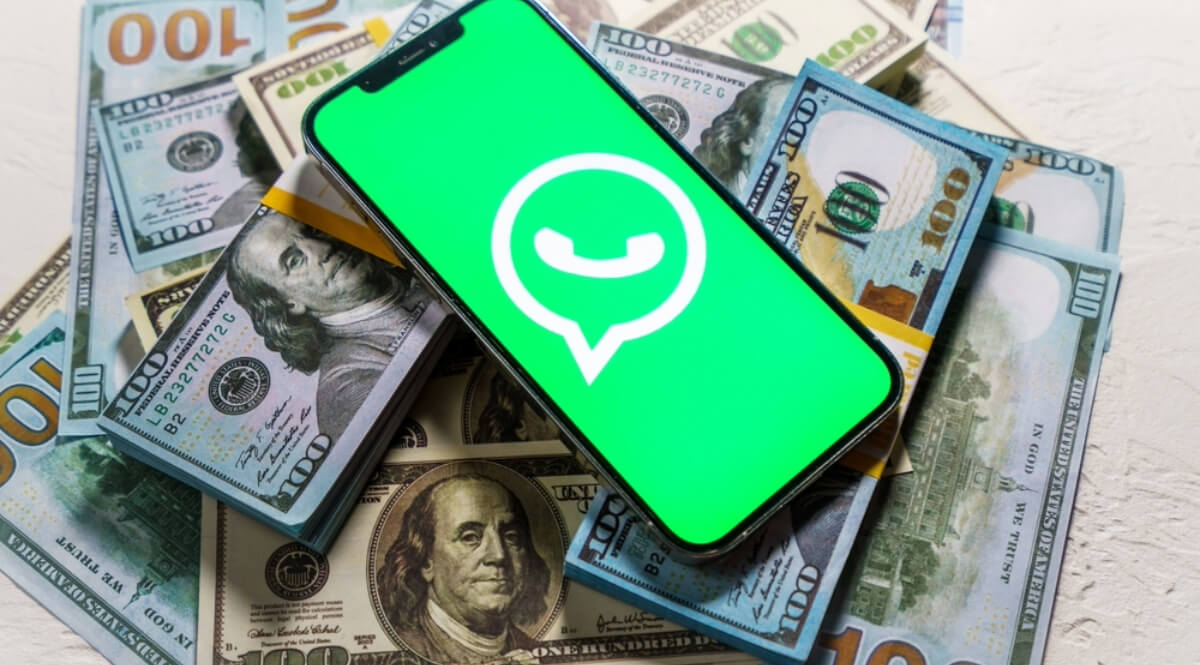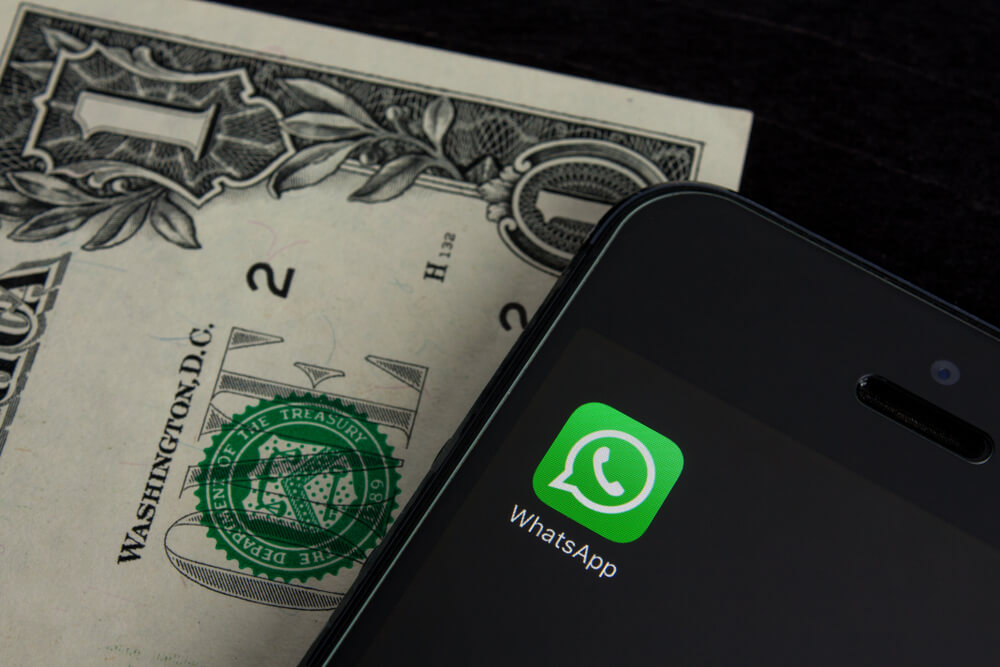
How does WhatsApp make money? Get All The Information.
Key Takeaways
- WhatsApp is a widely-used instant messaging and voice-over-IP service owned by Meta Platforms, offering text, voice, and video communication with strong end-to-end encryption.
- Revenue is generated from the Business API and transaction fees from WhatsApp Pay. This revenue primarily comes from India, Brazil, and Singapore, specifically for WhatsApp Business transactions.
- The Business API serves larger enterprises, automating support and sales operations and contributing to revenue growth.
- WhatsApp Pay was approved for money transfers in India. It initially targeted a specific user group. However, by August 2022, it had expanded its reach to a wider audience.
- WhatsApp Business is a free tool for businesses. It has useful features and can be used on a browser. It allows businesses to engage with customers within 24 hours and focuses on protecting data and satisfying customers.
Have you ever thought about how WhatsApp makes money? How does this well-known company make money from “free calls and messages” on mobiles and other devices?
Technology has advanced rapidly in the last few years, especially in application development. When applications for free international calls and messages appeared, there was a huge “boom” in the market.
But many people want to know how WhatsApp makes money from this. What’s the secret of the WhatsApp revenue model? How does its messaging app monetization function?
Before we answer all these questions, especially “How does Whatsapp make money”, let’s briefly explain this app in general, shall we?
What is WhatsApp exactly?
WhatsApp, officially known as WhatsApp Messenger, is an instant messaging (IM) and voice-over-IP (VoIP) service owned by Meta Platforms, a technology conglomerate.
This platform allows users to send and receive text, voice, and video messages. It also enables them to make voice and video calls. The platform prioritizes user data privacy by using strong end-to-end encryption.
WhatsApp allows users to easily share different types of content like images, documents, and locations. It can be used on mobile devices and computers.
Transitioning to a free service
WhatsApp used to charge users, but now it’s free. It allows businesses to communicate securely with users, showing its commitment to message and user privacy.
In January 2018, recognizing the importance of WhatsApp in business communication, the platform introduced WhatsApp Business.
This app is for businesses to securely communicate with regular WhatsApp users, showing its commitment to end-to-end encryption and user privacy.
WhatsApp became, without exception, the most popular messaging app in 2015, with 2 billion users globally by February 2020.
The world’s most popular messaging app

By 2015, WhatsApp had swiftly risen to become the world’s leading messaging application, connecting over 2 billion individuals worldwide.
In 2016, it became the primary online communication method for people in Latin America, India, Europe, and Africa. This made it highly popular for mobile messaging.
This achievement helped Meta Platforms make money and reach billions of people with customer service. WhatsApp used to charge a fee, but now it’s free. They want to ensure everyone can use it, including individuals and small businesses.
Data Management and Security Integration
The platform’s effective data management and integration, 24 hours long with Meta, shape its future growth and security. It also protects sensitive data and accommodates many users.
What are the famous WhatsApp Security Features?
They employ robust end-to-end encryption and consistently enhance privacy measures. They have tools to make personal conversations more private, like locking chats, disappearing messages, and one-time viewing.
Further security is ensured through group privacy controls and the option to mute unknown callers.
New security features
And we also have some new security features, such as:
- Account Protect
- Device Verification
- Automatic Security Codes.
We are committed to ensuring your messages’ utmost privacy and security at WhatsApp. While end-to-end encryption forms the bedrock of our platform, we continuously innovate by introducing new features to offer additional layers of protection. Your privacy is our priority.
But before getting started with how does WhatsApp make money, it’s crucial to understand platform’ support and user base first!
Platform Support and WhatsApp’s User Base
WhatsApp’s platform history is marked by its expanding user base. It began in November 2009 with the iOS release and has grown significantly.

WhatsApp’s subscription fee model transitioned to a free service, attracting and retaining users. In February 2014, Meta Platforms acquired WhatsApp, bringing additional resources.
WhatsApp Web and Desktop for Enhanced User Base
WhatsApp expanded to the web and desktop, catering to a broader WhatsApp user base enhancing user experience and accessibility.
Windows and Mac Access for Growing User Base
WhatsApp’s 2016 launch on Windows and macOS enriched the user base with video and voice calls.
Smartwatch Support to Extend User Base
WhatsApp’s support for smartwatches, including Android Wear (now Wear OS), ensured accessibility for users on wearable devices.
iPad Unavailability Despite Growing User Base
WhatsApp doesn’t have an official iPad app due to telephony rules. However, they are developing a beta version to expand their user base.
What was the Meta’s acquisition of WhatsApp like?
Meta’s acquisition of WhatsApp was a pivotal moment, as it significantly impacted Meta Platforms’ financials. Meta’s strategic move helped it grow in the US and globally, reaching more than just friends and family.
WhatsApp easily connected with Meta’s ecosystem, including Facebook Messenger, by using phone numbers and real-time messaging.
Meta’s purchase was not only a temporary benefit. It was also part of their long-term plan. Their goal was to improve their products and protect their position in the online world.
And now we’ve come to the crucial point – How does WhatsApp make money? Let’s get straight to it, shall we?
WhatsApp’s Revenue Streams – How it makes money?

WhatsApp makes money from its Business API and transaction fees from WhatsApp Pay, its payment platform.
For larger enterprises, WhatsApp offers its API to facilitate the automation of support and sales operations. This strategy has positioned WhatsApp on a trajectory of steady revenue growth.
WhatsApp Pay Feature
WhatsApp makes money primarily through its WhatsApp Pay feature, a famous mobile app that allows users to send money. This service operates in India, Brazil, and Singapore, available for WhatsApp Business transactions only.
WhatsApp in India got approval from NPCI to partner with banks for UPI transactions. UPI relies on mobile phone numbers for account-to-account transfers.
Initially, UPI payments were limited to a specific number of users, gradually expanding to reach everyone by August 2022.
Exploring cryptocurrency integration
WhatsApp considered adding cryptocurrency to its platform, creating a stablecoin tied to multiple foreign currencies. This initiative included a digital wallet called “Calibra” (later “Novi”) for use on Facebook and WhatsApp.
However, Meta decided to end its Novi project in September 2022. WhatsApp earns money through WhatsApp Pay, a mobile app used for money transfers. Additionally, it collects data as part of its broader business strategy.
What Sets WhatsApp Business App Apart from WhatsApp?
WhatsApp Business app is designed for businesses and has a different logo than the regular WhatsApp app. This platform equips micro and small businesses with essential tools for efficient communication.
WhatsApp Business is free and has a browser version for easy access. Additionally, WhatsApp Business stands out because it allows businesses to engage with their customers effectively within a 24-hour window.
This feature ensures that businesses provide timely and responsive customer support, enhancing their ability to protect data and ensure customer satisfaction.
Over 50 million businesses use WhatsApp Business, which helps them communicate and support their customers effectively.
Bottom Line
So, for all of you who have wondered “How does Whatsapp make money”, should understand that WhatsApp generates revenue primarily through its Business API product and WhatsApp Pay transaction fees.
The API serves larger enterprises, automating support and sales driving revenue growth. WhatsApp Pay enables money transfers, mainly in India and Brazil, with limited availability in Singapore for WhatsApp Business transactions.
WhatsApp gained approval from NPCI in India for UPI transactions, relying on mobile phone numbers for transfers. UPI payments on WhatsApp were initially restricted to a specific user group but gradually expanded to a wider audience by August 2022.
These revenue sources align with WhatsApp’s global operations, including in the United States, operating within a 24-hour support window.




